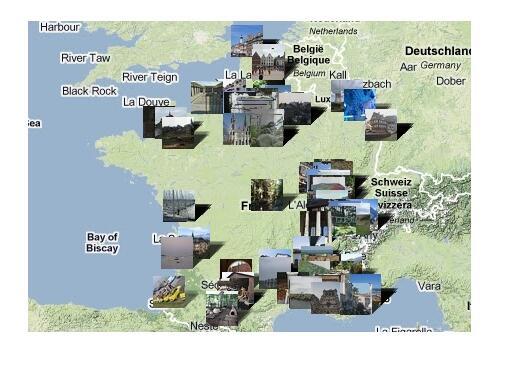French press review 30 October 2014
There are different takes on the controversial dam that is the object of protests in south-west France. Bosses are accused of pocketing money from tax breaks supposed to create jobs. And a scientist claims that a lot of research is a waste of time.
Issued on: Modified:

Le Monde and Libération both give pride of place to the ongoing dispute over the irrigation dam near the small southern French town of Sievens. Local farmers say they need the water the dam will collect to keep their maize cultivation going; opponents of the project say it's a waste of money and will destroy an important wetland habitat.

There are no fewer than 94 protected species in the area which will be inundated if the dam gets built.
A young protester died during clashed with the police last weekend. The project has since been suspended.
Le Monde wonders what can be saved from this human, economic and ecological tragedy.
Libération already knows the answer, describing the dam as "useless", regretting that it has taken such a long time and a tragic death for the stupidity of a long-contested project to become obvious to nearly everyone. The exceptions are the handful of farmers who stand to profit from the eight-million-euro project. There's a debate about how many farms would actually benefit from the finished dam.
Le Monde says it's not too late to abandon the dam and that the financial support promised by the European Union could be diverted to other public works. Central government has washed its hands of the affair, Prime Minister Manuel Valls saying yesterday that any decision on the future of the dam will be taken by the locally elected

departmental council.
Conservative paper Le Figaro says the police should not be blamed for the weekend drama which lead to the death of a young botanist at the site, apparently the victim of a police tear-gas canister which got caught between his body and his rucksack before it detonated.
Le Figaro is outraged by the people it calls "the supporters of the oil-lamp", claiming that a small group of reactionaries are attempting to use ecological disputes like Sievens to advance their own dark project, the subversion of the state. Let there be debate, says Le Figaro, but let it be reasoned and reasonable, not driven by outdated, anti-growth ideology and hatred.
They're angry at L'Humanité as well.
According to the communist paper, the government's offer of tax incentives to increase competitiveness has gone straight into the pockets of already-rich shareholders. The idea was to boost investment and create jobs. Neither has happened, laments L'Humanité, but the companies have pocketed the handouts, passing on the benefits to their shareholders.

The communist paper accuses Renault Trucks of cynically taking the government money and reducing the number of its employees.
According to the French finance ministry, the tax incentive scheme will create 396,000 jobs by the end of 2017. L'Humanité says the scheme will cost 66 billion euros. That means each new job is costing the state 167,000 euros.
Yesterday we were talking about the possibility that scientists have finally located the missing 80 per cent of the mass of the universe. This follows the possible location of a stash of "dark matter" in a group of galaxies about 250 million light years away.
Today Le Monde carries a story suggesting that an awful lot of scientific researrch is a total waste of time.
The man behind this assertion is the American biologist John Ioannidis, who has already made a name for himself by suggesting that the vast majority of published scientific discoveries are simply balderdash.
Now Ioannidis says that as many as 200 billion dollars are wasted every year in the single domain of biomedicine, flushed down the gurgler because the system works on a basis of intellectual dishonesty, dubious experimentation, weak statistics and sloppiness, the whole show financed by a pharmaceutical industry avid for results, no matter how dodgy.
There's also the problem that, in the world of scientific research, the same person can occupy the position of university researcher, be the editor of a scientific review, be director of a start-up company, member of a scientific committee, a government advisor and be financed by big industry.
Is it any wonder some of the pills the system produces are hard to swallow?
Daily newsletterReceive essential international news every morning
Subscribe